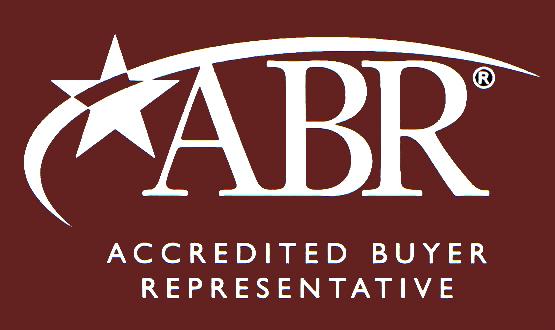Descriptions of Agency: The Buyer Agency Agreement
There are
agents, and then there are
agents. Yes, it sounds
confusing. That’s because
the term “agent” is often
used in a casual manner,
referring to any real estate
practitioner.
But
agent also refers to someone
with whom you’ve established
a formal agency
relationship—someone who
represents your best
interests in a real estate
transaction and owes you
fiduciary responsibilities.
Agency relationships are
usually established in
writing with buyer agency
agreements, and require:
- loyalty
- obedience
- disclosure
- confidentiality
- reasonable care and diligence
- accounting
The birth of buyer agency
For many
years, real estate was
practiced in such a manner
that agency relationships
were only extended to
sellers. Any real estate
agent who brought a buyer to
the table was actually
working as a sub-agent to
the seller.
This all
began changing in the 1980s,
when buyer agency started
gaining momentum in
residential transactions.
Today, agency laws still
vary from state to state.
But even if you live in a
state that recognizes buyer
agency, you can’t assume
that you will automatically
receive fiduciary
responsibilities from the
agent you’re working with as
a potential homebuyer.
That’s why it’s vitally
important to talk to the
agent or broker early in
your working relationship
about his/her agency status.
You may also want to consult
your state association of
REALTORS® to gain a better
understanding about agency
laws in your particular
state, or contact the agency
charged with regulating real
estate professionals in your
state, often referred to as
the state real estate
commission.
Details
vary from one state to
another, and each brokerage
has its own contract terms
within these broader
guidelines. But for purposes
of illustration, this table
outlines how your status may
affect the level of service
to which you are entitled:
|
Are you a
buyer-customer or a
buyer-client? Services will vary, depending on your agency status* |
|
| If you are a CUSTOMER (no agency relationship), an agent will: | If you are a CLIENT (agency relationship), your agent will: |
| Maintain loyalty to the seller’s need | Pay full attention to your needs |
| Tell the seller all that they know about you | Tell you all that they know about the seller |
| Keep information about the seller confidential | Keep information about you confidential |
| Focus on the seller-client’s property | Focus on choices that satisfy your needs |
| Provide just the material facts | Provide material facts as well as professional advice |
| Only provide price information that supports the seller’s listing price | Provide price counseling based on comparable properties and their professional insights |
| Protect the seller | Protect and guide you |
| Negotiate on behalf of the seller | Negotiate on your behalf |
| Attempt to solve problems to the seller’s advantage and satisfaction | Attempt to solve problems to your advantage and satisfaction |
* This chart is for general illustration purposes only. Agency laws vary by state; and specific terms of individual agency contracts will vary from one agent to another.
You may not know if you’re a customer or a client.
Depending on the laws in your state, you may find yourself working with someone who is actually negotiating for the seller, not you the buyer. The best way to be certain your interests are being considered and protected is to sign a buyer agency agreement with a trained buyer’s rep, which clearly establishes client-level services and spells out what services you can depend upon.
What about dual agency?
In some
cases, it will become
necessary for your real
estate professional to
deviate from the single
agency model. For example, a
buyer-client may become
interested in a house that
also happens to be offered
for sale by a seller-client
of their buyer’s rep, or by
the same brokerage firm. How
can a buyer’s rep, in this
instance, maintain complete
loyalty to their buyer if he
or she also owes complete
loyalty to the seller?
Obviously, they can’t.
But, depending on the real
estate license laws in your
state, and your status with
the brokerage firm, the
manner in which this
situation is handled will
vary. To get concrete
answers, you should read and
discuss the brokerage
services disclosure
statement, which should
reflect your state’s agency
law. If your agent hasn’t
supplied a disclosure
statement, you should ask
for it. It spells out the
different categories of
agency services they provide
and how they address dual
agency.
Almost all
states require disclosure of
dual agency and often
require that a buyer’s rep
(or his or her brokerage
firm) only act as a dual
agent with the written
consent of all parties to
the transaction. In such a
situation, the brokerage
agrees to endeavor to be
impartial between both
parties and will not
represent the interest of
either party to the
exclusion or detriment of
the other party. Neither
will they share the
confidential information of
one party with the other
party. This is how brokerage
firms and their agents
strive to create win-win
situations for everyone
involved. There are a few
states that prohibit dual
agency even with disclosure
and consent.
Other types of relationships
Some states
also allow different types
of relationships beyond
agency relationships. For
example, a transaction
broker assumes
responsibility to facilitate
the transaction, rather than
represent one side over the
other. Further obligations
may also be set forth in a
written contract with a
client.
Even though
the laws concerning agency
can vary from one state to
another, one thing that is
constant throughout the U.S.
is the obligation for all
REALTORS® to comply with the
National Association of
REALTORS® Code of Ethics.
Issues to discuss with a buyer’s representative
Real estate agency relationships, like all business relationships, can be formed in a number of ways. In order to help talk through your options, here are several questions to ask your buyer’s rep:
- Do you represent buyers, sellers or both?
- What services are provided to (or excluded from) me, based on my status as a buyer-customer or buyer-client?
- When does representation begin? When does it conclude?
- If I’m not ready to commit to your normal term, can you offer me a one-day buyer agency agreement or a 24-hour opt-out clause?
- How is dual agency addressed in your firm?









